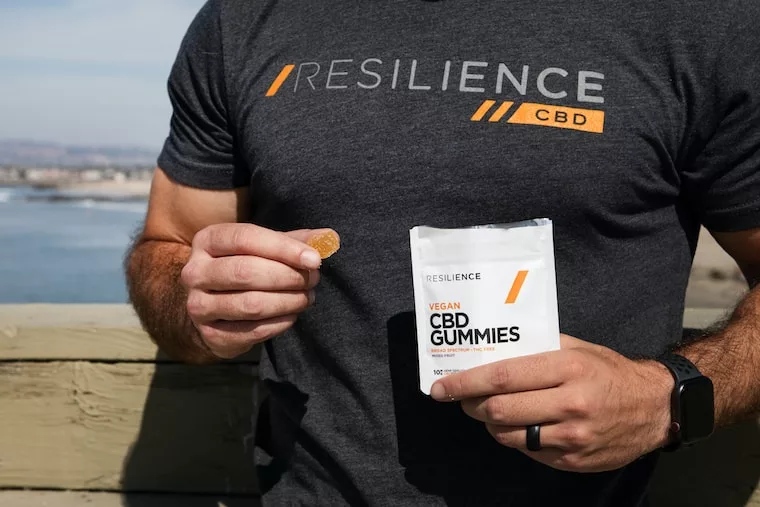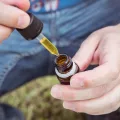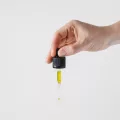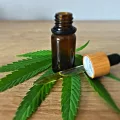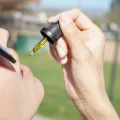Jump to Section
Introduction
Athletes push their bodies to the limit in training and competition, often resulting in sore muscles, injuries, and chronic pain.
In recent years, CBD has gained popularity as a natural supplement that may help athletes cope with these issues.
In this article, we will explore the benefits of CBD for athletes, the science behind it, and how to use it effectively and safely.
What is CBD?
Cannabinoids
Cannabidiol (CBD) is one of over 100 chemical compounds found in the cannabis plant, collectively known as cannabinoids.
These cannabinoids interact with the body’s endocannabinoid system (ECS) to produce various effects on mood, pain perception, and inflammation.
How CBD Differs from THC
The most well-known cannabinoid is delta-9-tetrahydrocannabinol (THC), which is responsible for the psychoactive effects or “high” associated with marijuana use.
CBD, on the other hand, is non-psychoactive and does not produce a high.
This makes it an attractive option for athletes looking for natural remedies without the mind-altering effects.
CBD for Athletes
As athletes seek ways to improve their performance and recovery, many have turned to CBD for its potential benefits. Research on CBD for athletic performance is still in its early stages, but anecdotal evidence and preliminary studies suggest it could be a valuable addition to an athlete’s wellness routine.
The Benefits of CBD for Athletes
Pain Relief
One of the primary reasons athletes use CBD is for its potential pain-relieving properties.
CBD is believed to interact with the body’s ECS, which plays a crucial role in pain modulation.
By reducing pain perception, athletes may be able to train harder and recover faster.
Reduced Inflammation
Inflammation is a natural response to injury and stress, but excessive inflammation can hinder performance and recovery.
CBD may help reduce inflammation by interacting with the ECS and regulating the production of inflammatory cytokines.
Improved Sleep Quality
Quality sleep is essential for athletic performance and recovery.
CBD may help improve sleep by reducing anxiety and promoting relaxation, allowing athletes to get the restorative rest they need.
Anxiety and Stress Reduction
The mental aspect of sports can be just as challenging as the physical demands.
CBD may help athletes manage anxiety and stress by influencing the ECS and serotonin receptors, leading to a more balanced mood.
Faster Recovery
All the benefits of CBD mentioned above can contribute to faster recovery times for athletes.
By reducing pain, inflammation, anxiety, and improving sleep quality, athletes may be able to get back to their training routine more quickly.
The Science Behind CBD for Athletes
Endocannabinoid System
The endocannabinoid system (ECS) is a complex cell-signaling system that plays a vital role in maintaining homeostasis within the body.
It regulates various functions such as pain perception, inflammation, mood, and sleep.
CBD is believed to interact with the ECS by enhancing the effects of the body’s natural endocannabinoids and modulating the activity of specific receptors.
Research Studies
While more research is needed to fully understand the effects of CBD on athletic performance, several studies have shown promising results.
For example, a 2018 review found that CBD has potential as a treatment for various types of chronic pain, including muscle and joint pain.
Another study suggested that CBD might reduce inflammation and oxidative stress in athletes, which could contribute to improved recovery.
How to Use CBD for Athletic Performance
Dosage
Finding the right CBD dosage for athletes can be a trial-and-error process, as individual needs can vary.
It’s generally recommended to start with a low dose and gradually increase until the desired effects are achieved.
Consulting with a healthcare professional experienced in CBD use is also advised.
Consumption Methods
There are several ways to consume CBD, including oils, tinctures, capsules, edibles, and topical creams. Athletes should choose the method that best suits their needs and preferences.
For instance, topical creams might be more effective for localized pain, while oils or capsules may be better for systemic effects.
Potential Side Effects and Safety Considerations
Although CBD is generally considered safe, some potential side effects include dizziness, dry mouth, and changes in appetite.
It’s essential to use high-quality CBD products from reputable sources to ensure safety and efficacy.
Additionally, athletes should consult with their healthcare provider before using CBD, especially if they are taking medications or have pre-existing medical conditions.
Legality and Sports Regulations
CBD’s legal status varies by country, state, and even individual sports organizations.
Athletes should familiarize themselves with the rules and regulations surrounding CBD use in their specific sport to avoid any potential issues.
As of September 2021, the World Anti-Doping Agency (WADA) removed CBD from its list of prohibited substances, making it permissible for use by athletes in most sports.
Conclusion
CBD offers various potential benefits for athletes, such as pain relief, reduced inflammation, improved sleep, and faster recovery.
Although research is still in its early stages, the current evidence suggests that CBD could be a valuable addition to an athlete’s wellness routine.
Before incorporating CBD into their regimen, athletes should consult with a healthcare professional, consider the appropriate dosage and consumption method, and ensure they are adhering to the rules and regulations of their specific sport.
Frequently Asked Questions
- Is CBD safe for athletes? CBD is generally considered safe for athletes when used appropriately. However, it’s essential to consult with a healthcare professional and use high-quality products from reputable sources.
- Can CBD improve athletic performance? While research is still ongoing, CBD may help athletes by reducing pain, inflammation, anxiety, and promoting better sleep, all of which could contribute to improved performance and recovery.
- Does CBD show up on drug tests? Most drug tests screen for THC, not CBD. However, some CBD products may contain trace amounts of THC, which could potentially result in a positive test. Athletes should choose CBD products with third-party lab testing to ensure they contain no THC.
- What is the best way to consume CBD for athletic performance? The best consumption method depends on individual preferences and needs. Options include oils, tinctures, capsules, edibles, and topical creams. It may be helpful to experiment with different methods to determine which works best for you.
- How long does it take for CBD to take effect? The onset of CBD’s effects varies depending on the consumption method. Oils and tinctures typically take effect within 15-45 minutes, while edibles can take 1-2 hours. Topical creams may work within minutes for localized pain relief.
I am a CBD enthusiast and creator of DJ Hemp who has made it my mission to enlighten the world about the cannabis industry through thought-provoking literary works.
I have successfully fostered an open-minded, inquisitive community that is eager to learn more about the potential benefits of CBD.
Contact me at [email protected] for assistance.

